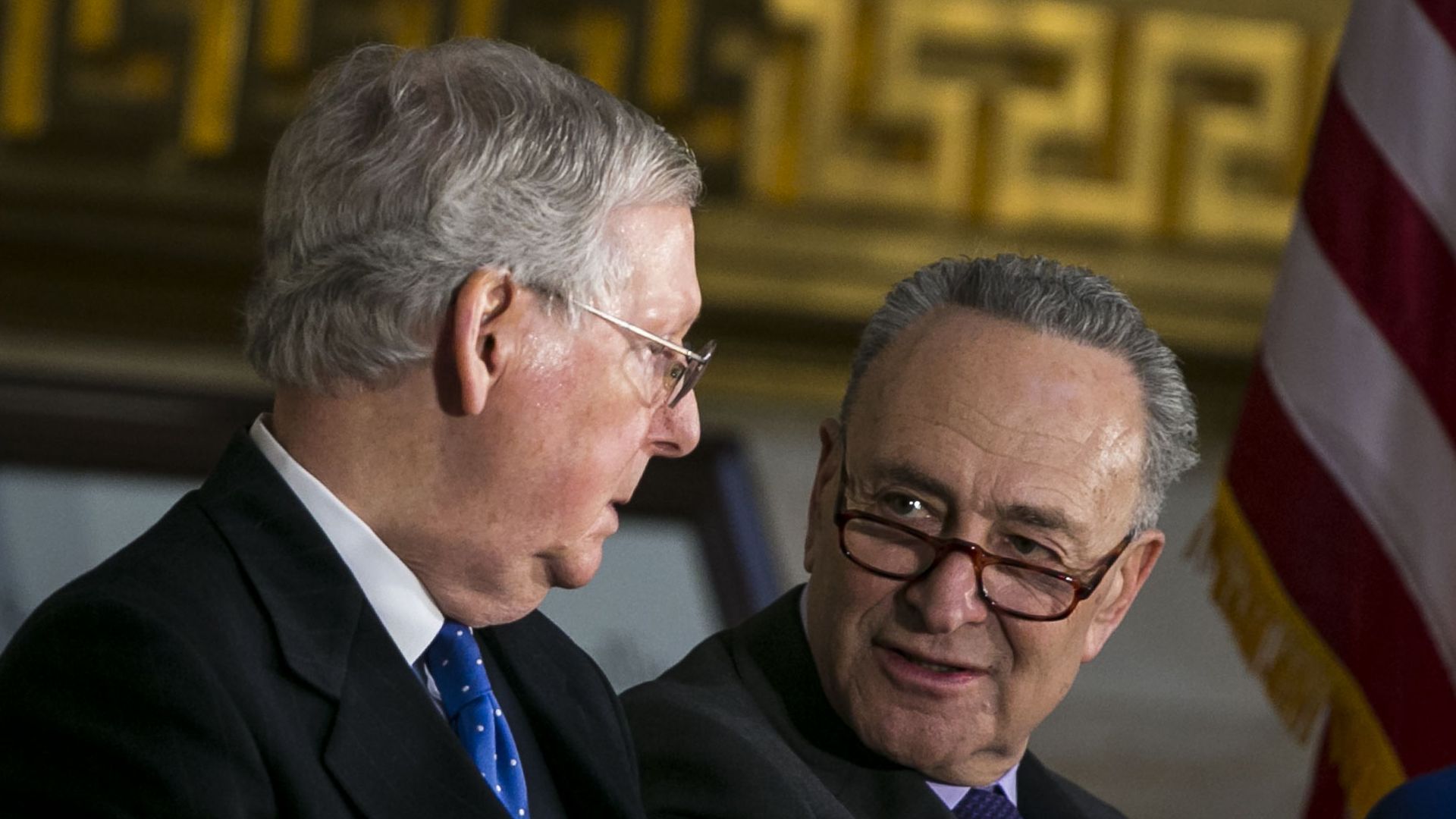Feb 7, 2018 - Politics & Policy
There’s a ton of health care money in the Senate’s budget deal
Add Axios as your preferred source to
see more of our stories on Google.

Sens. Mitch McConnell and Chuck Schumer reached a budget compromise. Photo: Al Drago-Pool/Getty Images
